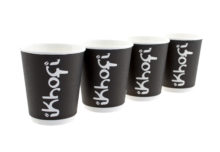Environment Secretary Michael Gove has confirmed a ban on plastic straws, drinks stirrers, and plastic stemmed cotton buds in England, following overwhelming public support for the move.
Following an open consultation, a ban on the supply of plastic straws, drinks stirrers and cotton buds will come into force in April 2020. The ban will include exemptions to ensure that those with medical needs or a disability are able to continue to access plastic straws.
The government’s response to the consultation revealed over 80% of respondents back a ban on the distribution and sale of plastic straws, 90% a ban on drinks stirrers, and 89% a ban on cotton buds.
There are instances where using plastic straws is necessary for medical reasons and the government will therefore ensure that those that need to use plastic straws for medical reasons can still access them. Registered pharmacies will be allowed to sell plastic straws over the counter or online. Catering establishments such as restaurants, pubs and bars will not be able to display plastic straws or automatically hand them out, but they will be able to provide them on request. The government believes this strikes the right balance between reducing environmental impact while protecting the rights of people with medical conditions and disabilities. The government will carry out a stocktake after one year to assess the impact of these measures and whether the balance is correct.
In England, it is estimated that annually we use 4.7 billion plastic straws, 316 million plastic stirrers and 1.8 billion plastic-stemmed cotton buds. An estimated 10% of cotton buds are flushed down toilets and can end up in waterways and oceans.
Environment Secretary Michael Gove said: “Urgent and decisive action is needed to tackle plastic pollution and protect our environment. These items are often used for just a few minutes but take hundreds of years to break down, ending up in our seas and oceans and harming precious marine life.
“So today I am taking action to turn the tide on plastic pollution, and ensure we leave our environment in a better state for future generations.”
Even though non-plastic alternatives are readily available, it is estimated that 95% of straws are still plastic. Cleaning up the effects of littering costs local government millions of pounds every year, with costs also imposed on the tourism and fishing industries, and the effect of plastic pollution worrying 89% of people.
It is estimated there are over 150 million tonnes of plastic in the world’s oceans and every year one million birds and over 100,000 sea mammals die from eating and getting tangled in plastic waste. A recent report estimates that plastic in the sea is set to treble by 2025.


